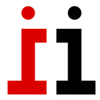|
Target Audience
Directors, Head of Departments and HR Officers and Managers/Supervisors. Programme Standards
- Maximum 6 attendees - 30 days of one to one support - Handouts - Programme director/s with at least a Masters Degree in the subject - Convenient morning timings or in-house at any time for a minimum of two bookings - Can be configured to address a number of professions and industry sectors Price
EUR248 ex VAT per participant. |
Internal Interviewing Skills Workshop
By addressing these key topics, managers can enhance their interviewing skills, promote meaningful performance discussions, and effectively support employee development within the organisation's performance management framework. Topics Covered
1. Interview Preparation and Planning: - Understanding the purpose and objectives of the appraisal interview process. - Developing a structured interview framework, including setting goals, defining criteria, and creating a list of relevant questions. - Preparing thoroughly by reviewing employee performance records, appraisal forms, and relevant documentation. - Planning logistics for the interview, including scheduling, location, and necessary materials. 2. Effective Communication Techniques: - Active listening skills to ensure managers fully understand employee perspectives and feedback. - Techniques for asking open-ended questions to encourage discussion and gather comprehensive information. - Non-verbal communication cues and body language awareness to convey interest, empathy, and respect. - Providing clear and constructive feedback while maintaining professionalism and objectivity. 3. Performance Assessment and Feedback Delivery: - Techniques for evaluating employee performance objectively and accurately against established criteria and expectations. - Providing specific examples and evidence to support feedback and ratings. - Balancing positive reinforcement with areas for improvement to encourage employee development and motivation. - Handling difficult conversations or addressing performance issues with sensitivity, empathy, and professionalism. 4. Goal Setting and Development Planning: - Collaboratively setting SMART (Specific, Measurable, Achievable, Relevant, Time-bound) goals with employees based on performance discussions. - Identifying opportunities for skill development, training, or additional support to help employees achieve their goals. - Establishing a plan for ongoing performance monitoring and feedback between formal appraisal periods. - Aligning individual development plans with organisational goals and priorities to foster employee engagement and retention. |
Search by typing & pressing enter

